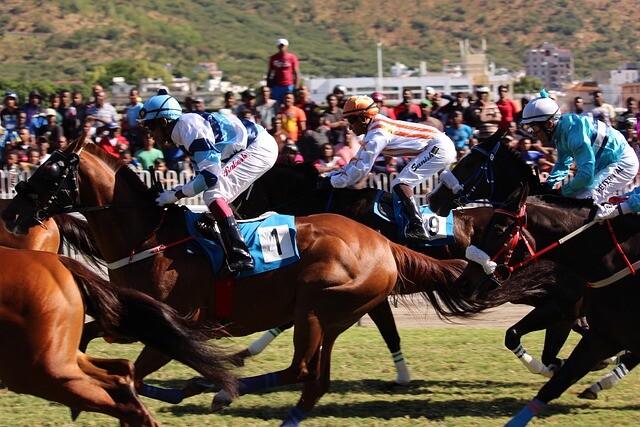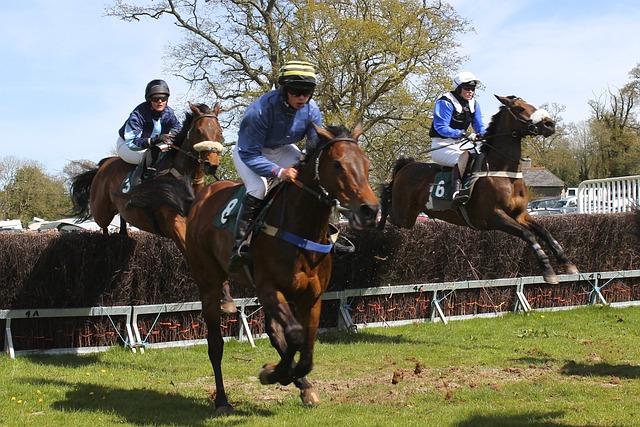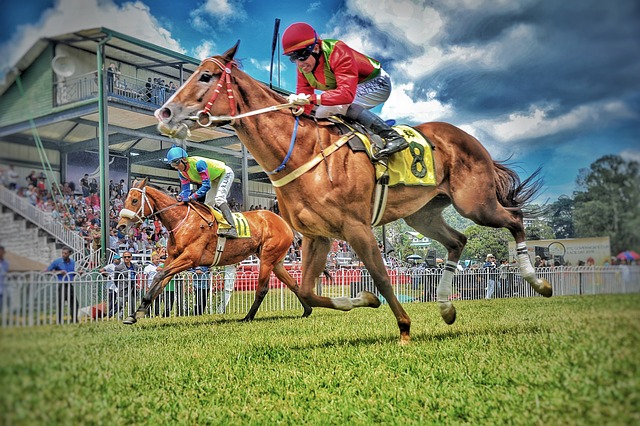 Horse racing is a sport that attracts masses of fans worldwide and has a truly global appeal. People from a range of countries not only take time to watch the latest races but to bet on them as well.
Horse racing is a sport that attracts masses of fans worldwide and has a truly global appeal. People from a range of countries not only take time to watch the latest races but to bet on them as well.
One of the most obvious examples is the UK. This country loves to back their favourite jockeys at sportsbooks online. Other locations which are hotbeds for horse racing betting include countries in mainland Europe, the US and the rest of the Americas and Africa. For a detailed breakdown of the top places to place bets on horse racing around the world, check out this list available on AskGamblers today.
So, what is it about the sport which attracts so much interest from fans and punters? One key factor is the range of famous festivals to keep track of every year. These bring the world’s top jockeys to compete and provide lots of races to wager on.
Here are some of the most iconic horse race festivals that fans around the globe love:
Royal Ascot – UK
Racing at Ascot in the UK dates back to the 1700s, which makes Royal Ascot one of the most famous horse race meets for fans worldwide. This is not just a horse racing festival — it’s a key part of the sports culture and has links to the UK’s royal family.
It’s held every June at Ascot Racecourse in Berkshire and attracts a diverse crowd from around the planet. Globally, plenty more race fans tune in to watch it, making it one of the most famous festivals around.
As well as its strict dress code, Royal Ascot is known for elite-level flat races such as The Gold Cup and St James’ Palace Stakes. It has played host to some of the world’s best jockeys, such as Lestor Piggott, Ryan Moore and Frankie Dettori.
The Grand National Festival – UK
Staying in the UK, we move on to the Grand National Festival at Aintree in Liverpool. This festival is traditionally held each April and makes headlines all over the world. As well as a cosmopolitan crowd each day it runs, this festival is one people outside of the UK love to keep track of.
The premier race at this festival is The Grand National itself, which involves a large field of runners making their bid to come home first. As you would expect, this race and the festival in general are a magnet for the sport’s top jockeys. Other iconic races at this festival include the Foxhunters Chase, the Melling Chase and the Topham Chase.
Prix de l’Arc de Triomphe – France
The status horse racing has is clear when you consider the famous global festivals for fans to watch. France’s Prix de l’Arc de Triomphe might technically be just one race on one day, but it’s famous enough to make our list. It also shows that there’s a lot more to France than the Eiffel Tower or Tour de France!
This race brings together the world’s best jockeys, most successful trainers and top horses. It’s usually run in October each year and takes place at Longchamps racecourse in Paris. Also known simply as The Arc, it’s Europe’s oldest horse race event and was first run in 1920.
Bluestocking took home the plaudits in 2024 and fans around the world are already looking forward to what this race will bring in 2025.
The Kentucky Derby Festival – USA
The Kentucky Derby is one of horse racing’s most legendary events and is so famous that a whole festival has sprung up around it! The festival itself typically starts in late April and includes a range of races and activities leading up to the Kentucky Derby on the first Saturday in May. This makes it a racing event that fans worldwide love to experience and stay in touch with.
The race itself takes place at Churchill Downs racecourse in Louisville and is run over roughly two minutes. It’s the first part of the prized ‘Triple Crown’ in US racing and precedes the Preakness Stakes. If you plan to travel here for the Derby, get ready for mint juleps and rich tradition.
Dubai World Cup Night – UAE
Although the festivals we’ve looked at so far go way back in history, UAE’s Dubai World Cup Night is more of a newcomer. This event was set up in the late 1990s and is known for not only having the best jockeys competing to win but also huge prize purses.
The festival takes place at Meydan racecourse in Dubai and includes exciting races such as the Dubai Gold Cup and Dubai Sheema Classic. The Dubai World Cup Race is the most famous individual event at this meet and the last race of the night. Tadgh O’Shea is a standout jockey for this race and won it in 2024.
Melbourne Cup Carnival – Australia
Australia’s Melbourne Cup Carnival is easily one of horse racing’s top events and builds up to the iconic Melbourne Cup race. The festival is held each November at Flemington racecourse in Victoria. Notable races include the VRC Oaks which helps get the lively crowd ready for the Melbourne Cup itself.
This race not only gets major attention from viewers in Australia but is widely viewed around the world. With millions on offer in prize money, each runner and jockey are keen to make it past the post first. 2024’s Melbourne Cup result saw 90-1 outsider Knight’s Choice win by a photo finish to shock watching punters!
Top horse race festivals for global fans
Horse racing has a lot going for it as a sport and plenty of things which attract fans on a global scale. The sheer number of awesome festivals around the world is a great example and our list details many of these events. From the royal connections of Royal Ascot to the rich traditions of the Kentucky Derby and more, the best festivals in horse racing really do bring something special for people all over the world to enjoy.
 In July, 2023, jockey Adrian Heskin announced that he would be returning to his native Ireland to continue his riding career. Born in Kilworth, Co. Cork on April 22, 1992, Heskin rode his first winner, Mystical Breeze, trained by Michael Hourigan, at Naas in March, 2009. He rode his first winner on British soil, Turf War, also trained by Hourigan, at Ffos Las three months later and, towards the end of the 2009/10 season, completed a notable double for the Co. Limerick handler on New Story in the Glenfarclas Handicap Chase at Cheltenham and Church Island in the bet365 Gold Cup Chase at Sandown Park.
In July, 2023, jockey Adrian Heskin announced that he would be returning to his native Ireland to continue his riding career. Born in Kilworth, Co. Cork on April 22, 1992, Heskin rode his first winner, Mystical Breeze, trained by Michael Hourigan, at Naas in March, 2009. He rode his first winner on British soil, Turf War, also trained by Hourigan, at Ffos Las three months later and, towards the end of the 2009/10 season, completed a notable double for the Co. Limerick handler on New Story in the Glenfarclas Handicap Chase at Cheltenham and Church Island in the bet365 Gold Cup Chase at Sandown Park. Horse racing is a sport that attracts masses of fans worldwide and has a truly global appeal. People from a range of countries not only take time to watch the latest races but to bet on them as well.
Horse racing is a sport that attracts masses of fans worldwide and has a truly global appeal. People from a range of countries not only take time to watch the latest races but to bet on them as well.  For readers unfamiliar with the name, Brian Toomey is a former National Hunt jockey, who finally retired from the saddle on June 14, 2016, but has recently made headlines by passing the British Horseracing Authority (BHA) required to be granted a training licence. Toomey rode 49 winners under National Hunt Rules in Britain, but his story is all the more remarkable for the fact that, on July 4, 2013, he was pronounced clinically dead for six seconds and, at one point, was given just a 3% chance of survival. On that day, his mount, Solway Dandy, fell heavily at the third-last flight in a conditional jockeys’ handicap at Perth and Toomey suffered a horrific head injury, which caused him to lose consciousness.
For readers unfamiliar with the name, Brian Toomey is a former National Hunt jockey, who finally retired from the saddle on June 14, 2016, but has recently made headlines by passing the British Horseracing Authority (BHA) required to be granted a training licence. Toomey rode 49 winners under National Hunt Rules in Britain, but his story is all the more remarkable for the fact that, on July 4, 2013, he was pronounced clinically dead for six seconds and, at one point, was given just a 3% chance of survival. On that day, his mount, Solway Dandy, fell heavily at the third-last flight in a conditional jockeys’ handicap at Perth and Toomey suffered a horrific head injury, which caused him to lose consciousness.